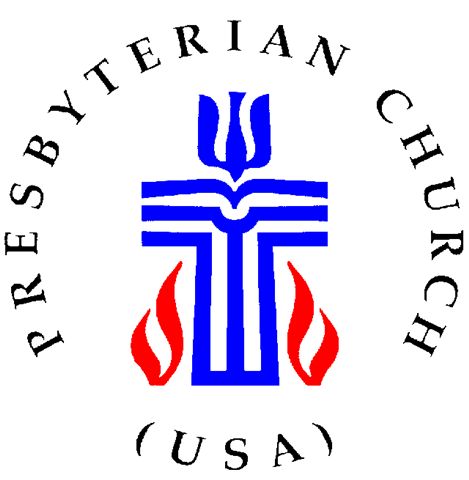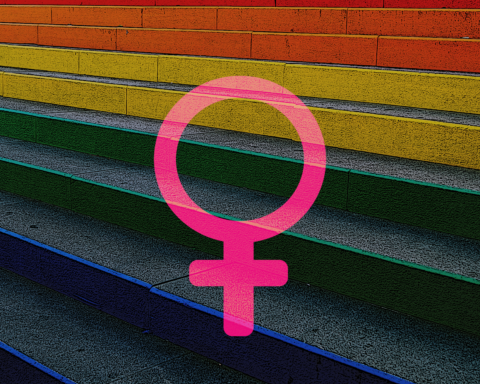How Gender Justice Brought Me Back to the Church
“I have always found it difficult to walk away from the church, but I have also found it difficult to walk with it.” [1]

Those evocative words, the first sentence of feminist theologian Letty Russell’s formative work Church in the Round, are the best summary I can give of my introduction to feminist theology. As a woman who grew up in a church tradition that did not allow for any sort of leadership by women, “walking with” the church has been a painful experience for a large part of my life. Even now, long after I left that particular church tradition, those years of forced diminishment of my humanity have left what feels to be a “limp” in my soul.
As a result of this negative experience growing up in the Church, I left for college and jumped at the opportunity to finally “walk away” from the institutional church – with no intention of ever coming back. During this time I happened upon Mary Daly’s writings and her ideas about post-biblical feminism. Based on my experience, I could understand why she wrote these things about the Bible and the Church that some Christians found so offensive. In my rage at the Church that marked my early twenties, I was convinced that this patriarchal institution and faith tradition had nothing to offer me except for more disappointment and abject denial of who I was.
___________________________________________
The PC(USA)’s theological and social stances on gender justice are the evangelism that drew me to this denomination.
___________________________________________
However, as I tried to walk away from the Church, something about the Church kept tightening its hold on me. Laugh if you will, but during that time, the Church felt almost like an annoying ex-boyfriend, who, even after breaking things off long ago, kept sending me endless texts and mushy hallmark cards with hand-drawn hearts in the inside. This Church-as-a-creepy ex-boyfriend feeling persisted throughout most of my twenties. Simultaneously it seemed that, “by the roots of my hair some god got hold of me” and She refused to let me go. [2] I soon found myself in graduate school studying theology, though still with no intention of ever entering another church building. My grand plan was to graduate and teach religion while spending the rest of my life in a blissful boycott of the Church.
 That grand plan was quickly foiled after graduation, when I discovered that an M.A. in Theology is not what might be classified as a “marketable degree.” After over 100 job applications, I desperately and despondently accepted a job as a Youth Director at a Presbyterian church in Indiana. This was the only church job I had applied for in the endless pool of applications, and of course, as God’s maddening sense of humor would have it, it was the one job in the pool that was offered to me. At that time, I had no idea what ‘Presbyterian’ even meant. It seemed like a strange churchy word with far too many letters in it.
That grand plan was quickly foiled after graduation, when I discovered that an M.A. in Theology is not what might be classified as a “marketable degree.” After over 100 job applications, I desperately and despondently accepted a job as a Youth Director at a Presbyterian church in Indiana. This was the only church job I had applied for in the endless pool of applications, and of course, as God’s maddening sense of humor would have it, it was the one job in the pool that was offered to me. At that time, I had no idea what ‘Presbyterian’ even meant. It seemed like a strange churchy word with far too many letters in it.
What surprised me most when I started working at this Presbyterian church was the presence of a woman pastor on staff. I had read about women clergy in my studies, but to actually see a real-live woman minister in the flesh – it seemed as elusive to me as the stories of Big Foot and the Loch Ness Monster! Needless to say, this was an anomaly that quickly captured my interest.
___________________________________________
I remember him saying to me, “You know, Mary Magdalene was the first Gospel preacher. She was the first to proclaim to the world ‘Christ is risen!’ The first Gospel preacher was a woman.”
___________________________________________
After I had served for almost 2 years as Youth Director, the head pastor, Rev. Doug Mankell, made the seemingly off-handed comment to me that I should consider going back to seminary to become a Presbyterian minister. Discussing it again later, I remember him saying to me, “You know, Mary Magdalene was the first Gospel preacher. She was the first to proclaim to the world ‘Christ is risen!’ The first Gospel preacher was a woman.”

In those few sentences, my long-standing fortress of doubt, mistrust, and rage at the Church began to sway, crack, and tumble down, brick by brick. This festering wound in my soul began to mend itself together from the inside out. Six years after those words were spoken to me, I would graduate from Louisville Presbyterian Theological Seminary and accept a call to the ministry of Word and Sacrament in the PC(USA).
The PC(USA)’s theological and social stances on gender justice are the evangelism that drew me to this denomination, and I continue to recognize them as unique markers of our denomination. It puzzles me that the churches that have physically grown and increased numerically in the last fifty years in the North American Christian landscape are generally churches that do not share our gender justice beliefs. This seems paradoxical in light of how drastically our social climate has changed in regard to gender in those same fifty years.
However, we need also to consider this apparent paradox in light of the simultaneous upsurge in recent years of people in the United States who do not claim any religious affiliation. The number of Americans who do not identify with any religion continues to grow at a rapid pace. One-fifth of the U.S. public – and a third of adults under 30 – are religiously unaffiliated today, the highest percentages ever in Pew Research Center polling. In the last five years alone, the unaffiliated have increased from just over 15% to just under 20% of all U.S. adults.
___________________________________________
It is my belief that a large portion of people leaving the Church are people like me: people who have been hurt by the Church, who have witnessed the Church denying their own humanity or the humanity of someone they love.
___________________________________________
It is my belief that a large portion of people leaving the Church – or refusing to step inside a church building in the first place – are people like me: people who have been hurt by the Church, who have witnessed the Church denying their own humanity or the humanity of someone they love. I often wonder if these religiously unaffiliated people only ever encounter those Christian churches that are physically growing and gaining the most attention are churches, churches that espouse views about life and humanity that are not congruent with their own consciences. For many, these views are not only ‘not congruent,’ but actually contradictory and offensive; therefore, they choose to have nothing to do with the Church.

This is one of many reasons why the PC(USA)’s beliefs concerning gender justice can be such a powerful instrument of euangelion – the Greek word for “telling good news,” from which we get our English word “evangelism” – in our time. I believe there are many people in our culture and society who would be shocked to hear, and likely relieved and even overjoyed to know, that the Church is called to be a people and space in which all people are welcome. This was a new concept for me before I came to know the PC(USA). This was not my experience of the Church, and I firmly believe that there are many people in our world who have not experienced the open arms of the Church in a way that truly reflects the open arms of the Christ we witness in the Gospels. This open-armed Church of Welcome has something completely extraordinary to offer, something for which our world and culture are begging.
Furthermore, I believe that our most vital euangelion does not primarily come in the form of a General Assembly vote that happens to grab 15 seconds of attention on the morning news, or a headline in The New York Times. Neither does our euangelion come primarily in the form of church-wide public statements regarding our gender justice concerns. These things grab attention, they begin our witness, they set the stage for real transformation. However, from my own experience, I would say that our euangelion comes most meaningfully in relationship, in Presbyterians actively embracing the sacred humanity of all of God’s children.
___________________________________________
Our euangelion comes most meaningfully in relationship, in Presbyterians actively embracing the sacred humanity of all of God’s children.
___________________________________________
Our euangelion comes when individuals and church communities nurture relationships with individuals and communities in a way that recognizes, cares for, and holds sacred our common humanity and common bond in that we are all God’s beloved children. For me, it began with a particular person and particular church in the PC(USA). That church and that pastor built up and nurtured the humanity that another manifestation of church had sought to rob from me. Since then, through relationship with so many amazing people in the PC(USA), God has restored in me a hope that the Church can be this same source of restoration and healing for many.

churchofthepilgrims.org
And yet, before you conclude that I am a complete Pollyanna when it comes to the PC(USA), I acknowledge that our Church still has a long way to go in terms of gender justice. Our striving for and realization of gender justice in the Church and society reflects our ecclesiology: we are ecclesia reformata, semper reformanda; the Church “reformed, and always being reformed.” And we are painfully imperfect in our reformation and our discernment of how God’s open-armed Church looks. Too often we relegate people to issues, just as for so long my gender was the “issue” that barred me from full participation in the life of the Church.
In our recent denominational history, the Church has made sexual orientation an “issue” in a way that dishonors and degrades our very humanity. Even as our Church has made landmark decisions for the full life and participation of people who are LGBTQ in the PC(USA), many of us remain caught up in the issue so deeply that we miss the people. As an ally of many LGBTQ brothers and sisters in Christ, I hope for a day when the universal Church will recognize that our brothers and sisters are never the issue; they are human beings and, as such, sacred lives. Our LGBTQ brothers and sisters are not an issue – they are, in fact, the Church. And as I look ahead with hope for our denomination, I pray we remember in our dialogue and in our action there is no “us and them” in the Church, but only “us and us.”
__________________________________
[1] Letty M. Russell, Church in the Round: Feminist Interpretation of the Church (Louisville: Westminister/John Knox Press, 1993), 11.
[2] Sylvia Plath, “The Hanging Man,” in Ariel (New York: HarperPerennial, 1965), 69.
AUTHOR BIO: Rev. Darcy Metcalfe Mudd is currently serving as Solo-Pastor at First Presbyterian Church in Perrysburg, Ohio. Darcy’s passions include advocacy for women and children, as well as developing safe sanctuary/youth protection policies and resources. Darcy also currently serves on Leadership Team for the Advocacy Committee for Women’s Concerns for the PC(USA).
Read more articles from this issue, “Hearing the Voices of Peoples Long Silenced”: Gender Justice 2014!





Unbound Social